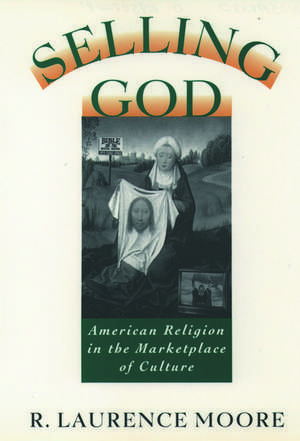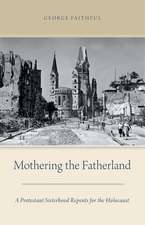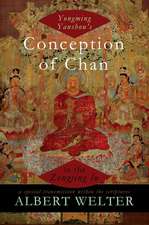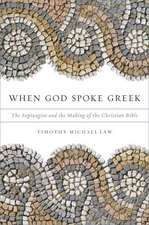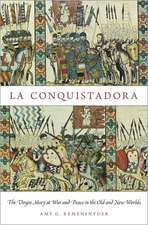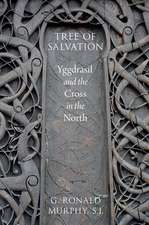Selling God: American Religion in the Marketplace of Culture
R. Laurence Mooreen Limba Engleză Paperback – 7 sep 1995
Preț: 135.72 lei
Preț vechi: 155.17 lei
-13% Nou
Puncte Express: 204
Preț estimativ în valută:
25.98€ • 28.23$ • 21.84£
25.98€ • 28.23$ • 21.84£
Carte tipărită la comandă
Livrare economică 09-15 aprilie
Preluare comenzi: 021 569.72.76
Specificații
ISBN-13: 9780195098389
ISBN-10: 0195098382
Pagini: 336
Dimensiuni: 215 x 142 x 21 mm
Greutate: 0.43 kg
Ediția:Revised
Editura: Oxford University Press
Colecția OUP USA
Locul publicării:New York, United States
ISBN-10: 0195098382
Pagini: 336
Dimensiuni: 215 x 142 x 21 mm
Greutate: 0.43 kg
Ediția:Revised
Editura: Oxford University Press
Colecția OUP USA
Locul publicării:New York, United States
Recenzii
'This is a well-documented historical study of a fascinating aspect of American religion. Recommended for public and academic libraries.'C. Robert Nixon, Library Journal, January 1994
'Thoughtful, nonpolemic and provocative, Moore's study is a singificant contribution to the scholarship of American religious history.'Publishers Weekly
`This is an interesting book, particularly for those who would study the problematical relationship between Christian faith and the market-place.Church of England Newspaper
`this is an interesting and readable book. ... This is a book that should be read widely ... because of its different way of examining the place of evangelical Christianity in society. ... those readers who want the churches to be popular in this contemporary world would do well to learn some of the lessons that the book teaches.'Peter Jarvis, Methodist Recorder
'Thoughtful, nonpolemic and provocative, Moore's study is a singificant contribution to the scholarship of American religious history.'Publishers Weekly
`This is an interesting book, particularly for those who would study the problematical relationship between Christian faith and the market-place.Church of England Newspaper
`this is an interesting and readable book. ... This is a book that should be read widely ... because of its different way of examining the place of evangelical Christianity in society. ... those readers who want the churches to be popular in this contemporary world would do well to learn some of the lessons that the book teaches.'Peter Jarvis, Methodist Recorder
